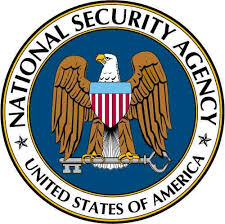U.S. President Barack Obama called for changes to U.S. National Security Agency surveillance, with new privacy advocates assigned to a surveillance court and a transition away from a controversial telephone records collection program in the U.S. U.S. President Barack Obama called for changes to U.S. National Security Agency surveillance, with new privacy advocates assigned to a surveillance court and a transition away from a controversial telephone records collection program in the U.S. However, Obama stopped short of major changes advocated by his own surveillance review panel and civil liberties groups.…
Read MoreTag: nsa
Exclusive: Inside America’s Plan to Kill Online Privacy Rights Everywhere
The United States and its key intelligence allies are quietly working behind the scenes to kneecap a mounting movement in the United Nations to promote a universal human right to online privacy, according to diplomatic sources and an internal American government document obtained by The Cable. The diplomatic battle is playing out in an obscure U.N. General Assembly committee that is considering a proposal by Brazil and Germany to place constraints on unchecked internet surveillance by the National Security Agency and other foreign intelligence services. American representatives have made it…
Read MoreMicrosoft Admits Its Datacenters Are Wide Open To NSA Attacks
When the NSA news started breaking this past summer, it was noted that Google quickly realized where the NSA might be hacking in, and rushed to encrypt the links that connect their data centers. While some may criticize this, it’s easy to see why companies never bothered to encrypt these links. They’re internal networks, with no direct access to the outside world. The threat likelihood was quite low… unless you’re a giant government spying operation. That said, once it was revealed that, indeed, this is how the NSA hacks in,…
Read MoreBig data pitches the EU against US government and corporates
The benefits of big data are being squashed under a steamroller of short-term corporate interests and the privacy abuses of security infrastructure, argues Joe McNamee. Joe McNamee, is the executive director of European Digital Rights (EDRi), an NGO that campaigns for civil rights in the digital environment. “What legal framework should be implemented when companies and governments increasingly know more about individuals than they know about themselves? This is the stark – and vastly underestimated – question that is facing European policy-makers in the reform of the data protection framework.…
Read MoreBrazil moves to secure telecom, Internet systems after US spying
Brazil said Wednesday it is moving to secure its communications through its own satellite and digital networks to end its dependence on the United States, which is accused of electronically spying on the region. “Brazil is in favor of greater decentralization: Internet governance must be multilateral and multisectoral with a broader participation,” Communications Minister Paulo Bernardo told a congressional panel. Tuesday, Foreign Minister Antonio Patriota warned his US counterpart John Kerry that the row over Washington’s electronic snooping could sow mistrust between the two countries. Kerry responded by conceding that…
Read MoreFears over NSA surveillance revelations endanger US cloud computing industry
American technology businesses fear they could lose between $21.5bn and $35bn in cloud computing contracts worldwide over the next three years, as part of the fallout from the NSA revelations. Some US companies said they have already lost business, while UK rivals said that UK and European businesses are increasingly wary of trusting their data to American organisations, which might have to turn it over secretly to the National Security Agency, its government surveillance organisation. One British executive, Simon Wardley at the Leading Edge Forum thinktank, celebrated the publication of…
Read MoreSpy program gathered Americans’ Internet records
WASHINGTON (AP) — The Obama administration gathered U.S. citizens’ Internet data until 2011, continuing a spying program started under President George W. Bush that revealed whom Americans exchanged emails with and the Internet Protocol address of their computer, documents disclosed Thursday show. The National Security Agency ended the program that collected email logs and timing, but not content, in 2011 because it decided it didn’t effectively stop terrorist plots, according to the NSA’s director, Gen. Keith Alexander, who also heads the U.S. Cyber Command. He said all data was purged…
Read MoreMan behind NSA leaks says he did it to safeguard privacy, liberty
He’s a high school dropout who worked his way into the most secretive computers in U.S. intelligence as a defense contractor — only to blow those secrets wide open by spilling details of classified surveillance programs. Now, Edward Snowden might never live in the United States as a free man again. In an interview with the British newspaper The Guardian, Snowden revealed himself as the source of documents outlining a massive effort by the U.S. National Security Agency to track cell phone calls and monitor the e-mail and Internet traffic…
Read MoreU.S. gives big, secret push to Internet surveillance
Senior Obama administration officials have secretly authorized the interception of communications carried on portions of networks operated by AT&T and other Internet service providers, a practice that might otherwise be illegal under federal wiretapping laws. The secret legal authorization from the Justice Department originally applied to a cybersecurity pilot project in which the military monitored defense contractors’ Internet links. Since then, however, the program has been expanded by President Obama to cover all critical infrastructure sectors including energy, healthcare, and finance starting June 12. “The Justice Department is helping private…
Read More







